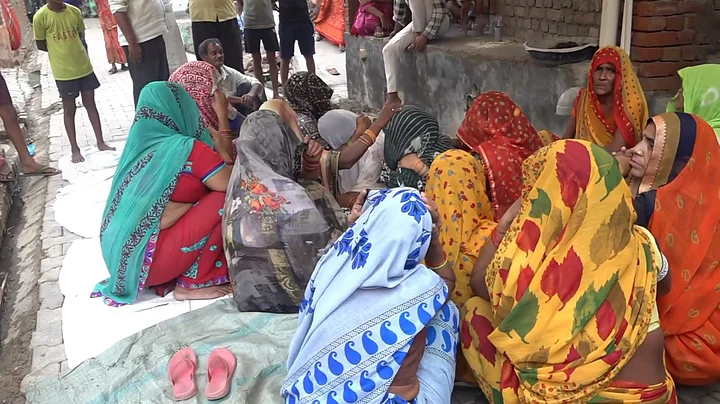The unprecedented and avoidable mass tragedy in Hathras that occurred at a 'satsang' of a self-proclaimed and self-styled godman aka ‘Bhole Baba’ has once again exposed the vulnerability and gullibility of a section of society and the dangers they are exposed to – in this case, women and their dependent children.
As many as 121 people (mostly women and children) have died and many more injured due to the sheer negligence of the local administration and the organisation behind the event.
This must not be regarded as one instance that can be called 'unfortunate' and 'regrettable' – and then forgotten. It points to a deeper malaise.
There is the administrative side of the entire incident and, hopefully a proper investigation will bring to books and punish those directly or indirectly responsible for causing this tragedy. But, when a tragedy of this magnitude happens, the political underbelly that is hand in glove with such negligence and exploitation must also not go unnoticed and unaccounted for. Hopefully, those links will also be exposed, and proper action will be taken.
However, what cannot be ignored is how a conniving, but supposedly ‘bhola’ individual, could succeed in ‘luring’ innocent, illiterate, and in every way ‘bholi’ public to pay obeisance to him in the manner it did.
What Makes Women More Susceptible?
Because it was mostly women who died in this tragedy, it is important to address the gender issue at this point.
Why are more women than men attracted to such events? What makes them so susceptible to such manipulation? What can society do to educate them on this aspect of their lives?
As much as it is true that an individual’s religiosity and spiritual foray are personal to the individual, some element of rationality also needs to determine actions primarily motivated by blind faith. It is, perhaps, the lack of education, empowerment, and self-esteem that is overbearing on their sense of reason that leads vulnerable women to participate in such insecurely organised mass events.
Add to this the fact that, perhaps, participation in such events is their only opportunity to 'get away' from their dreary chores of family duties.
The company of other like-minded women who are all seeking some kind of ‘redemption’ from their ‘not-so happening’ lives may also be a rejuvenating and a re-energising source to carry on with their own lives. This makes them easy victims – and the matter all the more concerning.
They are also likely to believe that their participation in such spiritual events will bring good tidings for them and their families, and thus, becoming victims of their own gullibility.
On many such occasions they do not even have the luxury to leave their little ones at home safely.
The children are not only exposed to the immediate dangers of badly managed mass congregations, but also to the slow ‘brainwashing’ that is happening to them despite their education. This is further reinforced in the girl child as she grows up in such an environment.
A Collective and Individual Responsibility
The ‘bholi’ public cannot prevent such ’bhole babas’ from springing up, but surely, we can prevent them from exploiting our vulnerabilities, for we are all ‘vulnerable’ in some ways. The responsibility is both at the collective and the individual level.
The state administration should be more vigilant in monitoring this menace of self-styled ‘godmen' and 'godwomen’ from mushrooming and thriving on the socio-economic and psycho-social deprivation of the underprivileged sections of society.
It must only allow mass social gatherings under strictly enforced laws with adequate management. It cannot be partisan to negligence as was the case in the said tragedy – a mere 150 police personnel were present to manage a congregation of 2.5 lakh people.
At the individual level, it is the responsibility of the senior members of the family to ensure the safety of the family, particularly of women and children. They need to provide them opportunities of more meaningful and educative social interactions which will instill in them a sense of self-esteem and empowerment.
This will forge an understanding of how they can defend their vulnerabilities and protect not only their own self-interest, but also that of those dependent on them.
(Dr (Ms) Shashi Motilal (Retd) Professor of Philosophy, Department of Philosophy, University of Delhi, India, obtained her PhD from the State University of New York (SUNY) at Buffalo, USA in 1986. She has been Visiting Faculty at the University of Akron, Ohio, USA and Carleton University, ON, Canada, TERI University, New Delhi and IIT/Delhi and IISP, New Delhi. This is an opinion piece and the views expressed above are the author’s own. The Quint neither endorses nor is responsible for the same.)
(At The Quint, we question everything. Play an active role in shaping our journalism by becoming a member today.)
